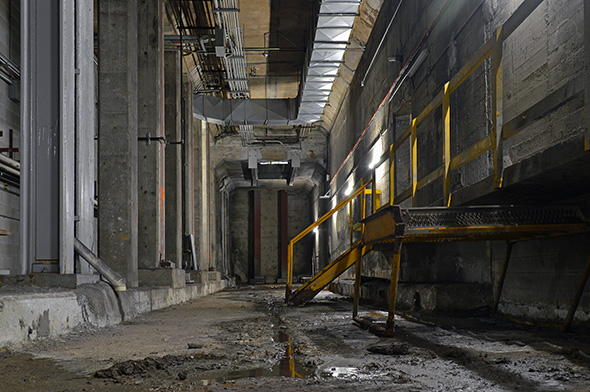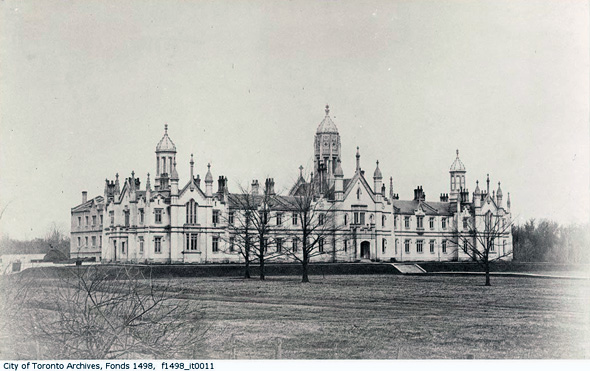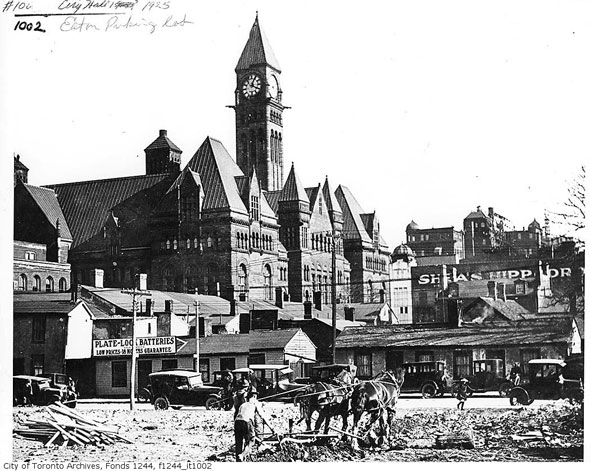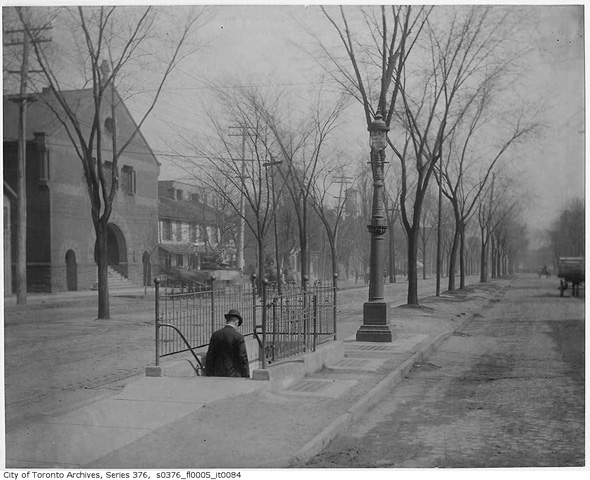
10 strange and unusual things you might not know about Queen St.
Queen is a street steeped in Toronto lore. From its status as the city's first major east/west thoroughfare to the arts and music heyday of the 1970s and '80s, to its ranking as one of the coolest strips in the world. Behind Yonge, it might be the most important street in Toronto, and with that comes all sorts of trivia to soak up.
Here are some strange and unusual things you might not know about Queen St. in Toronto.
1. Queen St. isn't its original name. When the city of York was first laid out by John Graves Simcoe, Lot St. was its primary east/west thoroughfare as well as the marker used to divide the city into a series of estates that now determine our downtown road map.
2. The 501 streetcar, which services Queen Street through much of its route, is the longest in the world. It's also one of the most frustrating.

Lower Queen station.
3. There was almost a subway route along Queen St. before the city decided to build the Bloor-Danforth Line. There's the shell of an unused subway station under Queen on Line 1 as the last remains of the unrealized project.
4. There used to be CPR train stations at various spots along Queen St., including stops like Sunnyside, South Parkdale, Riverdale, and Don.

Old Trinity College as it looked in 1856.
5. Trinity Bellwoods was once home to one of the city's most beautiful buildings but it was demolished in 1950. The current Trinity College on Hoskin Avenue at U of T was built in 1925 and is similar in design to the original.
6. Toronto's oldest operating hotel is located at Queen St. West and Gladstone Ave. The Gladstone Hotel opened in 1889, the year that Parkdale was annexed by the city.

The Ward.
7. Before there was New City Hall and Nathan Phillips Square, the area northwest of Queen and Bay (then Terauley) streets was the heart of the neighbourhood known as the Ward, one of the city's poorest areas. Virtually no evidence of its existence on the the streetscape remains today.
8. The bridge that takes travellers across the Don River along Queen St. is adorned with a public art piece by Eldon Garnet that reads "this river I step in is not the river I stand in," a fitting rumination on the nature of time that was illuminated in 2015 with the help of 1,800 metres of wiring.

Entrance to the old public washroom.
9. There's a buried public washroom under the intersection of Queen and Spadina. Built in the early 1900s, it was one of a series of such spaces around the city, which were slowly shut down in the mid 20th century.
10. The current site of CAMH was once called the Provincial Lunatic Asylum and later the Queen Street Mental Health Centre. When the 19th century building was demolished in the mid 1970s, the address was changed from 999 Queen St. West to 1001 in an effort to diminish the stigma that surrounded the previous facility.
Hector Vasquez, Derek Flack, and the Toronto Archives.
Latest Videos
Latest Videos
Join the conversation Load comments







